Twice a year we invite our clients to share their thoughts on how we’re doing and where we can improve as a company via a Net Promoter Score Survey. In our most recent survey, clients rated us 186% (or 41 points) higher than industry average. There’s no better feeling than seeing feedback like this:
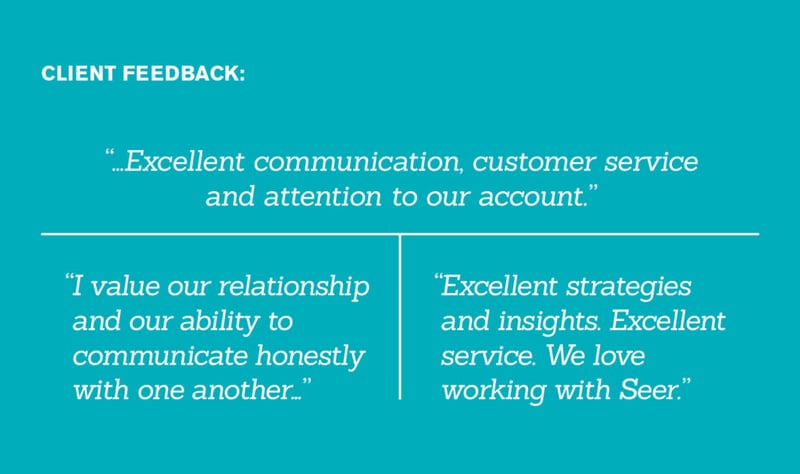
As consultants, trust is vital to the success of our projects, but often times building trust & rapport with clients is easier said than done. I have found that with a solid foundation of trust & rapport, clients are more likely to be happy, results are achieved more quickly, and it’s often easier to hit goals.
Outlined below are a list of trust-and rapport-building tactics that have worked well with our clients. You may not feel comfortable with every tip, but as with the start of any relationship, you might feel uncomfortable, but the payoff is well worth it.
When You First Begin Working Together
Using these tactics will help build a solid foundation with your new clients.
- Assume rapport at the start of a new client relationship. Think of your points of contact like they're already your bff and your actions will follow
- Keep your word. Do what you say that you are going to do. If you commit to something but can't deliver, be upfront about it.
- Clarify expectations. Create a shared and agreed upon vision upfront.
- Don't be that person who forgets names. We've all been that person at some point. Practice remembering names.
- Speak your client's language. If your clients refer to their "category pages" as "grid pages" that's what you should call them too.
- Prime your big ideas and major deliverables by discussing them with your clients well before you need to deliver or present them. Make sure they understand them and how they fit into the big picture before delivering.
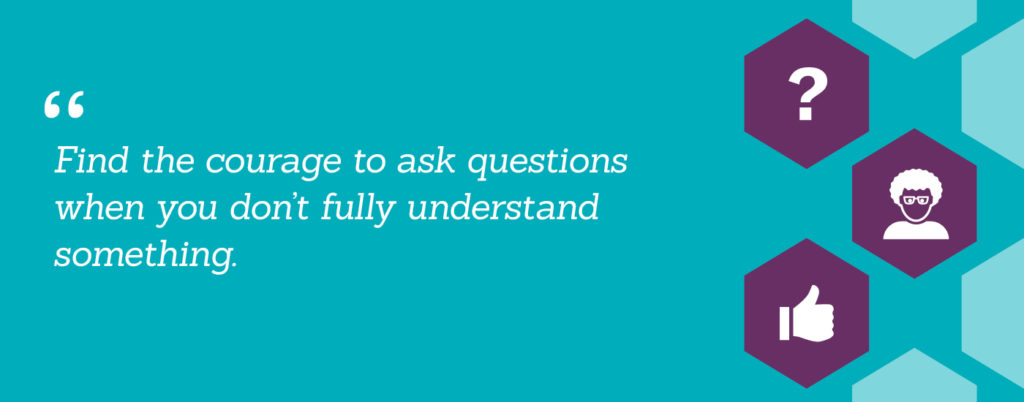
- Practice asking questions and build your knowledge base of questions for clients. Below is a list of examples of strategic questions that our founder, Wil Reynolds, has compiled over the years.
- Ask how your clients prefer to see information. Are they visual learners (Powerpoint)? Super analytical and want to play with the data (Excel)? After sending over a few deliverables, ask which ones they liked best and why.
- Trust yourself. Remember that you're the expert. Be confident in your abilities.
- Deliver results. Establish a track record of making things happen. Before you deliver something ask yourself how it will contribute to your client's business or professional goals. It doesn't matter if it was in the Scope of Work or not, constantly ask "why" you're doing something and "how" it will contribute to your clients’ goals.
On Calls & In Person
- Forget the cookie cutter small talk at the beginning of client calls. Spend 10 minutes researching your client’s industry/company/something interesting to talk about at the start of every interaction if you don't already have a strong personal relationship with your client. If you already have a good relationship, spend some time chatting about something meaningful before you hop into your call agenda.
- Write down some personal things about your client and bring them up again later. What's your client’s work and personal background? What are their hobbies? What are their kids' hobbies? Write this stuff down and incorporate it into future calls and presentations.
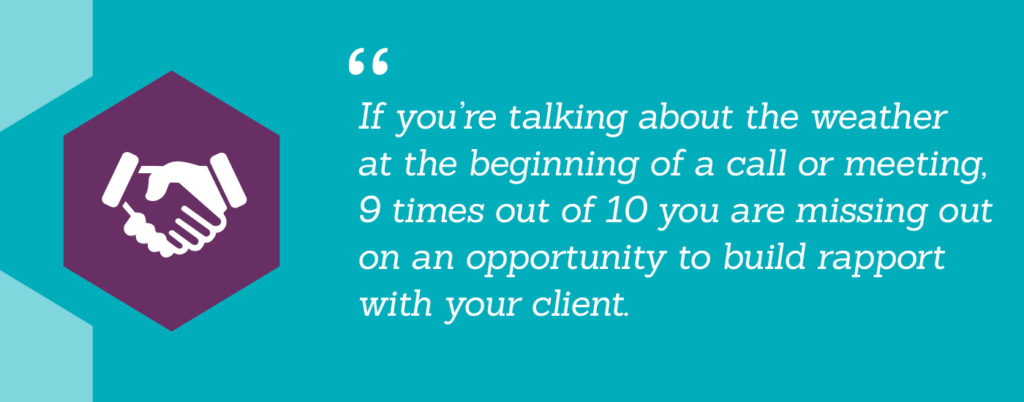
- Talk straight. Be honest and leave no doubt about what you are thinking.
- Smile - even when you’re talking on the phone.
- Be a good listener. Encourage your clients to talk about themselves. Practice putting yourself in their shoes.
- Lighten the mood. Crack a joke every once in awhile! If that's not your style, see if you can bring humor to calls and meetings in some other way. Figure out what makes your client smile, and make them smile.
- Practice delivering presentations or call agenda items ahead of time if you're new or feel as though you need client communication practice.
- Show loyalty. Give credit to your main points of contact when their colleagues and bosses are in the room. Look for opportunities to do so during in-person meetings and during calls.
- Ever jump into a conference call and not know the cadence of what to do or say first? Avoid the awkwardness by starting off with “Hello, this is [Your Name]” the minute that you enter the call.
When Things Go Wrong
- Don't take anything personally.
- Right wrongs. Apologize quickly.
- If something goes wrong, do NOT apologize if it's not your fault. Instead, investigate and come back with an answer or your best guess as to what happened.
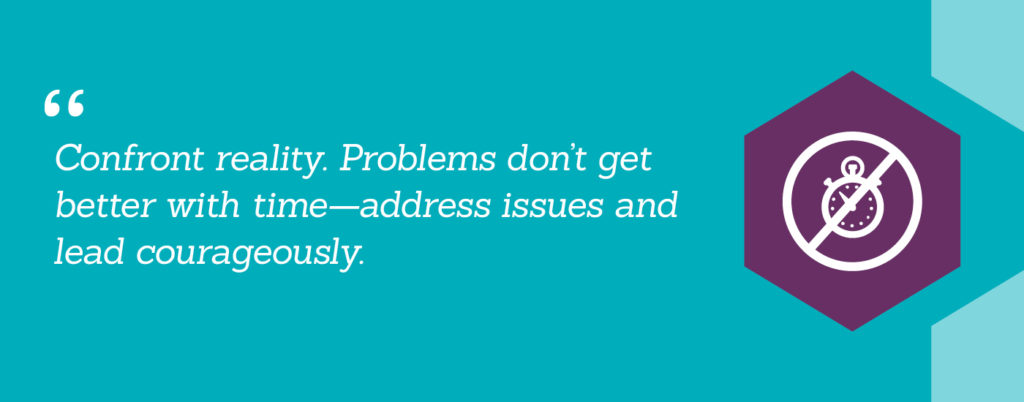
- Get your client to talk about projects that failed. What were the communication failures? Administrative or logistic failures? Learn from what worked and what didn’t.
- Get your clients to talk about projects that they consider to have been successes. What variables contributed?
Treating Clients Like Humans
We like to treat clients like human beings first, as opposed to faceless professionals that we’re merely working with. This mindset may not feel natural to you at first, and may not seem to fit the culture of your organization, but can pay enormous dividends. People want to work with folks who drive results, but they also want to work with folks who they enjoy being around and who treat them like human beings.
- Don't be afraid to correct your clients, say no, and push back - it builds respect.
- Go the extra mile when you can, like you would do for a best friend. Going above and beyond to help your client or to produce great work will not only deepen their trust and loyalty but will make them want to refer you to their friends and colleagues.
- Get better. Keep learning, and share what you learn with your client. It doesn’t need to be about SEO or whatever your expertise is. It could be about your broader industry, home brewing, bikes, woodworking, a new dish you cooked that came out really well...whatever. The point is to develop a thirst for knowledge and share that knowledge with your client like you would a friend.
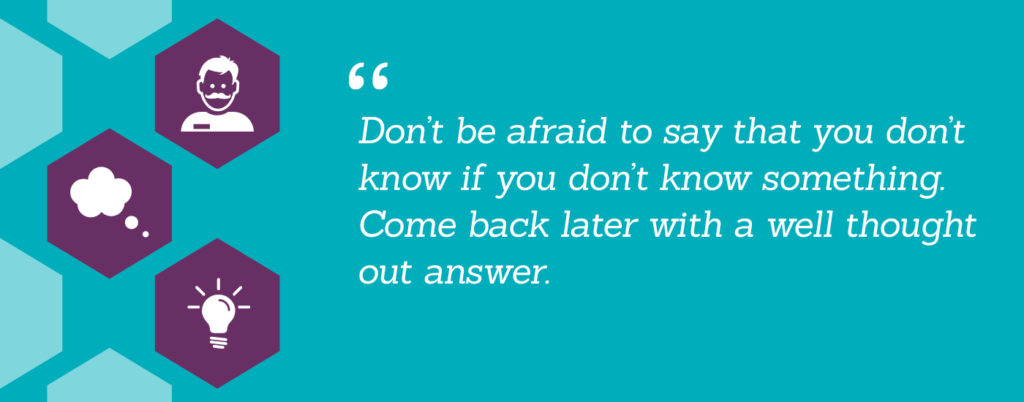
- Practice accountability. Hold yourself and others accountable.
- Show gratitude. Our clients pay our bills and our salaries. I've found that being genuinely grateful that our clients choose to work with us rubs off in many ways, and they can tell. It builds trust.
Looking For More?
I highly recommend reading the following books if you’re looking to establish, extend, or restore trust & rapport with your clients.
- The Speed of Trust
- How To Win Friends & Influence People
- Selling The Invisible
- Thinking Fast & Slow
- Getting Naked
- The Four Agreements
- Getting to Yes
How do you build trust & rapport with your clients? What tactics have you found to be helpful that are not on this list? Let us know by commenting below, we’d love to hear about them!


